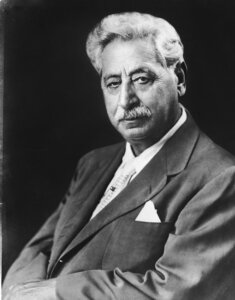Why the decision to shut down a Jewish play in Florida borders on obscenity
The censorship of Paula Vogel’s ‘Indecent’ in Jacksonville is a new and troubling development in the so-called culture wars

Paula Vogel, author of Indecent, at the 2022 Tony Awards.
The recent decision by the school authorities in Jacksonville, Florida, to cancel a high school production of Paula Vogel’s play Indecent is more than a little ironic.
Vogel’s play itself is based on a 100-year-old case in which the New York courts canceled the Broadway production of Sholem Asch’s Yiddish play The God of Vengeance because it featured a relationship between lesbian lovers who kissed onstage.
In a statement, Duval County Public Schools said the production planned for the Douglas Anderson School of the Arts contained “adult sexual dialogue that is inappropriate for student cast members and student audiences. It’s that simple. The decision has no relevance to any legislation but is rather a function of our responsibilities to ensure students engage in educational activities appropriate for their age.”
Florida’s recent “Don’t Say Gay” bill, championed by Gov. Ron DeSantis, gives school boards the right to make decisions about what is appropriate to teach about sexual orientation or gender identity.
Students at the high school, which has also explored sexuality and other mature content in shows like Rent and Chicago have made an appeal on social media for people to protest this censorship.

This cancellation comes a year after McMinn County’s school board in Tennessee voted to remove Maus, Art Spiegelman’s graphic novel about the Holocaust, from its eighth grade curriculum.
Yet all this controversy only reveals the immense power that Sholem Asch displayed in 1923’s The God of Vengeance. In the time Asch was writing, stories about ideas and societal issues, and calls for social justice, were the bread and butter of Yiddish theater. Asch wanted to call attention to the brothel system and the exploitation of women in early 20th century America where society benefited from women’s bodies and used its power to control them.
When I directed Indecent in Louisville, Kentucky, this past summer, I did it not only to tell a queer and Jewish story. I did it so that Jews and non-Jews alike would see that Jewish stories matter in order to repair the world. Asch and Vogel want to show that even in these hidden depths, there is love, faith, and a neshama — a Jewish soul.

“A ‘Jewish play’ is a play where Jews are specially characterized for the benefit of the Gentiles,” Asch wrote in an open letter after the Broadway production was shut down. “I write, and incidentally my types are Jewish, for of all peoples, they are the ones I know best. The God of Vengeance is not a milieu play — it is a play with an idea.”
I spoke with Vogel and asked her what she was learning from the situation in Jacksonville.
“The school board is endangering their future if they shut down plays, and endangering their safety,” Vogel said. “There is a real rise of antisemitism in Jacksonville and the students in the cast had wanted to open on March 6 because that is the date that the actors in The God of Vengeance were put in jail. They did their research, they were very responsible and they saw the absolute parallel to what happened then is the same as the rise of antisemitism today. Hate speech and homophobia is the cloak.
“I am now learning about hate groups such as Moms [for] Liberty and the Goyim Defense League,” Vogel continued. “And they are seeking out these student cast members and rocks are being dropped in their driveway to intimidate them and strike fear.”
Near the end of Indecent, a scene from Asch’s play is performed in a ghetto during the Holocaust. Evidently this performance in the ghetto really occurred. But the power of Indecent and its radical empathy, show how the intertwining of body, love, mind and spirit are greater than any fascism.
When the main interlocutor, Lemml, who, like the magid, the Jewish storyteller of old, navigates his audience through the play, says at the very beginning, “I want to tell you a story that changed my life … but I can’t remember the ending,” Vogel writes a telling line. We are fighting for our memory. When there is cancellation, our identity is blotted out, as Jews, as queer, as both and then we are relegated to the worst erasure of all, genocide.
“The canary in the coal mine is, as it was in the ’20s, with the rise of fascism — the promoting of genocide against the lives of those who are lesbian-positive and Jewish-positive,” Vogel said. “There is nothing prurient about Indecent. Why hurt the students who are aiming to become theater makers? Instead of letting them discover the issues of antisemitism, intolerance, censorship and the Holocaust the school board is censoring them. Disempowering young artists at this crucial age borders, to me, on an obscene act.”






















